In the inaugural year of the second decade in improving Beijing’s role as the center for international exchanges, the 2025 workshop for improving Beijing’s role as the center for international exchanges was jointly organized by the Organization Department of the CPC Beijing Municipal Committee, and the Office of Foreign Affairs Committee of the CPC Beijing Municipal Committee and Foreign Affairs Office of the People’s Government of Beijing Municipality from July 10 to 16. This initiative aims to systematically review the accomplishments made during the 14th Five-Year Plan period and make sound plans for the framework and tasks for the 15th Five-Year Plan period.
For the first time, the workshop split its sessions between Beijing and Shanghai. Approximately 70 officials at the director-general and division-director levels attended the training program, representing member organizations of Foreign Affairs Committee of the CPC Beijing Municipal Committee, member organizations of the Leading Group for Improving Beijing’s Role as the Center for International Exchanges, departments responsible for key tasks, all districts, a number of higher education institutions, and major export-oriented enterprises.
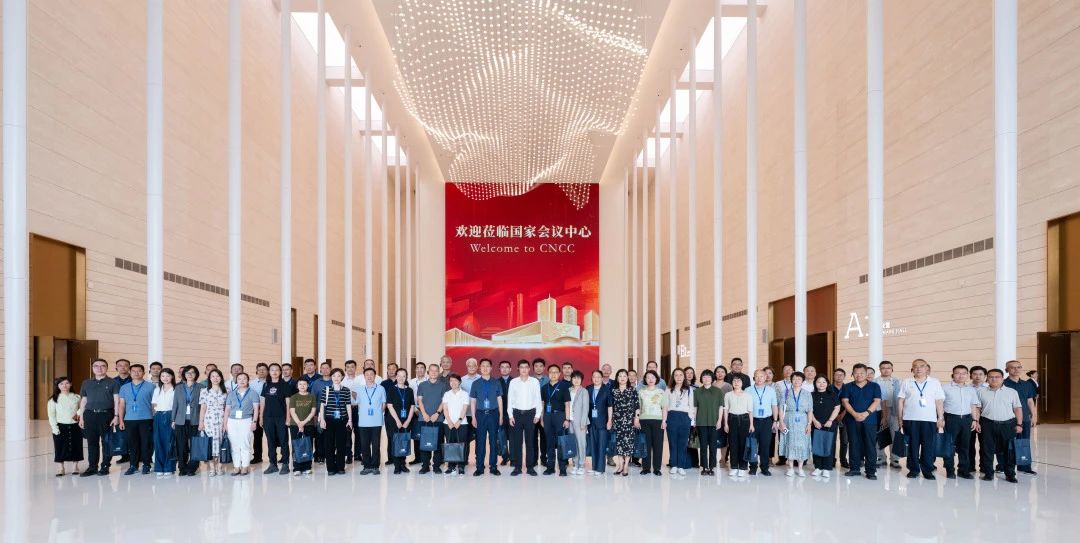
Authoritative and In-Depth Study of Theories
Leaders from central authorities, including the Office of the Foreign Affairs Commission of the CPC Central Committee and the Ministry of Commerce; representatives from local governments, international organizations and enterprises; and experts and scholars were invited to deliver thematic lectures. Jiang Peng, Director-General of Foreign Affairs Management Bureau of the Office of the Foreign Affairs Commission of the CPC Central Committee, elaborated on the core essence, rich connotations, and practical requirements of Xi Jinping Thought on Diplomacy, systematically expounded the Party rules and regulations concerning foreign affairs, and put forward guiding opinions for advancing high-quality development of foreign affairs work in the capital. Xiong Jiuling, Director General of the Office of Foreign Affairs Committee of the CPC Beijing Municipal Committee and Foreign Affairs Office of the People’s Government of Beijing Municipality, expounded on key issues in improving Beijing’s role as the center for international exchanges, covering aspects including planning and construction, urban operations, public services, foreign-related publicity, and regional development. Yang Jun, Deputy Director-General of Beijing Municipal Commission of Planning and Natural Resources, made an in-depth interpretation on the staffing and requirements of the Implementation Guidelines for the Plan on Building Beijing into the Center for International Exchanges. Wang Kan, Division Director of Department of North American and Oceanian Affairs of the Ministry of Commerce, gave a detailed illumination about the China-U.S. economic and trade ties in light of current situation.
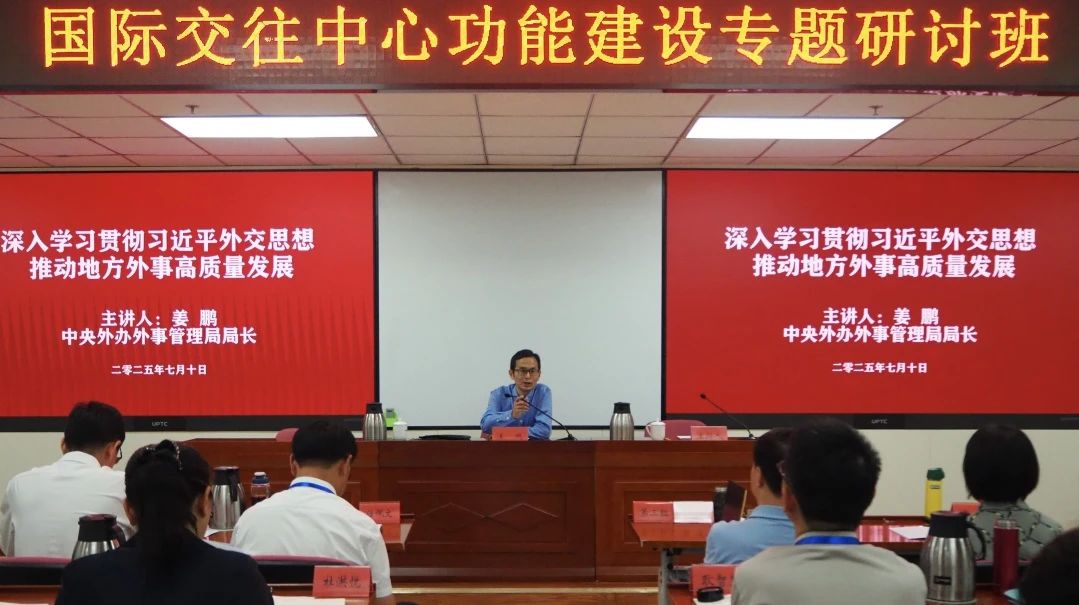
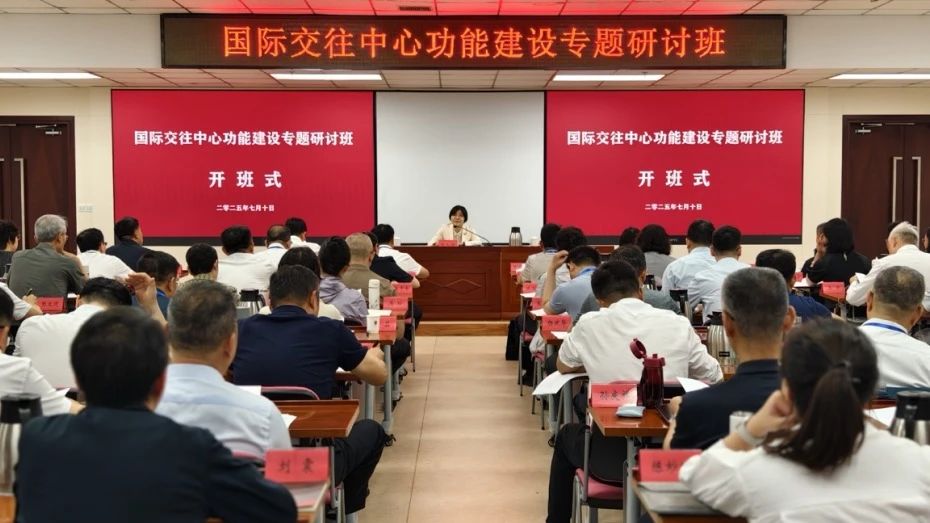
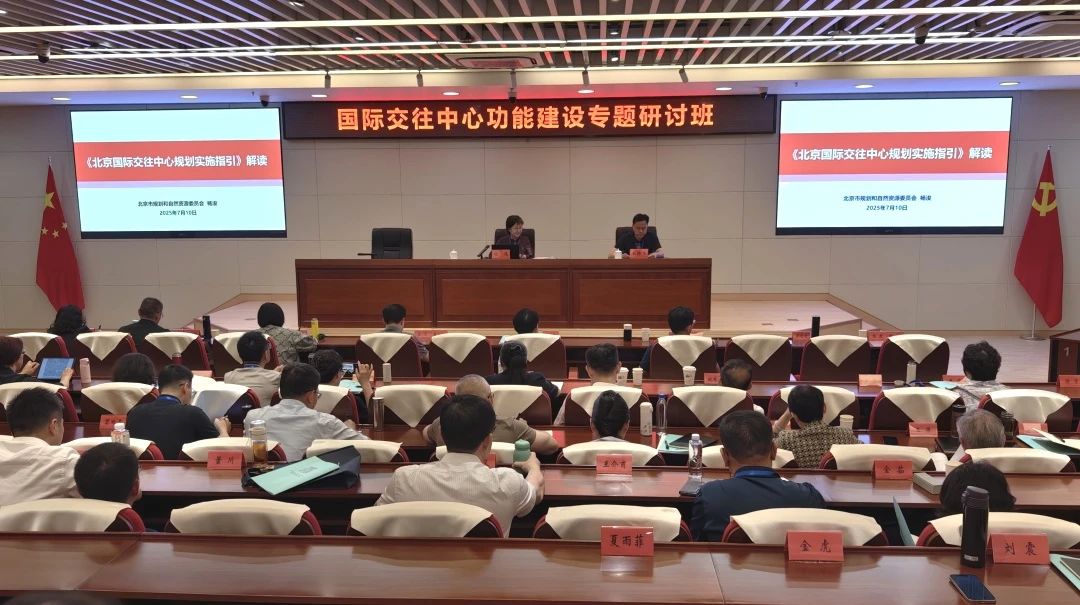
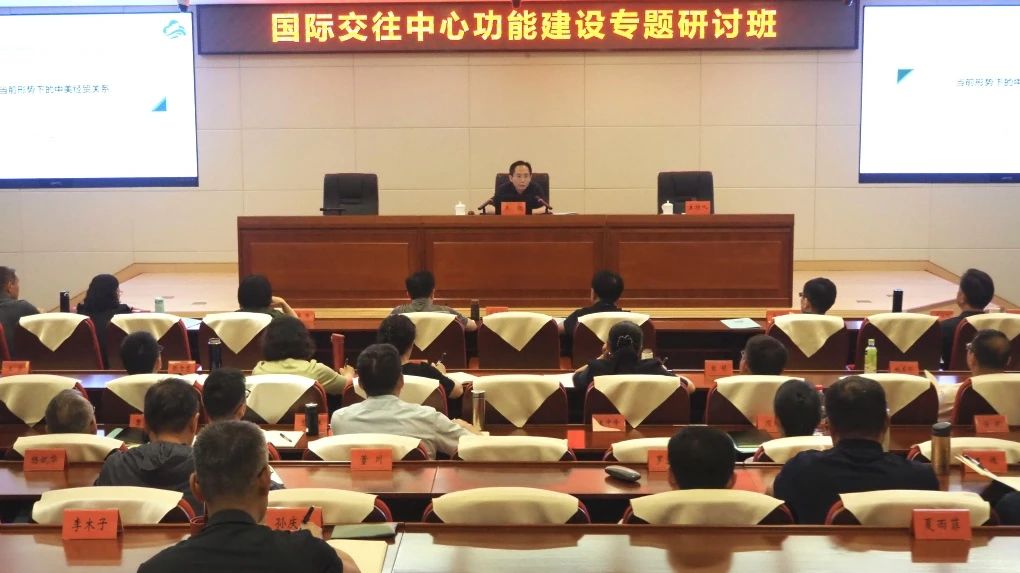
Beijing-Shanghai Advantages Deepening Understanding
Leveraging the unique strengths of Beijing as the core platform for China’s major-country diplomacy with Chinese characteristics and Shanghai as the frontier of the national reform and opening-up, the workshop offers specialized trainings in the two cities. During their stay in Beijing, participants visited venues for major diplomatic and state events, such as the China National Conference Center Phase II, gaining insights into China’s overarching diplomatic strategies and Beijing’s international engagement capabilities at the “home court”. During their stay in Shanghai, participants visited key projects such as the Grand Halls, Shanghai Museum East, National Exhibition and Convention Center (Shanghai), Shanghai Hongqiao International Central Business District, and New Bund Global Economic Organization Cluster. They learned firsthand about Shanghai’s experience in building host diplomacy venues, optimizing international services, and attracting high-end international resources.
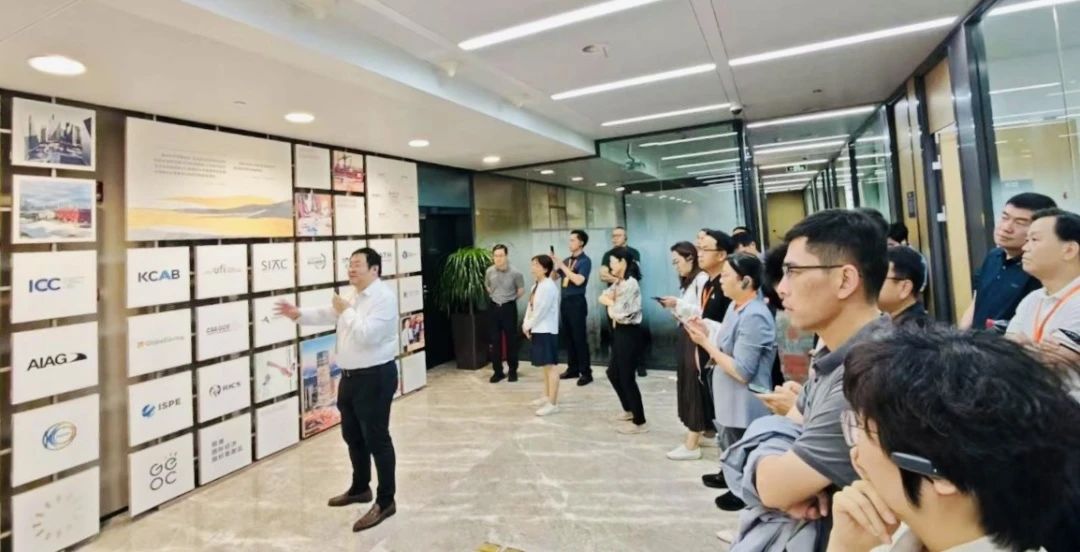
Visiting the New Bund Global Economic Organization Cluster
Solutions Initiated Through Learning and Discussions
Prior to the training, participants identified challenges in improving Beijing’s role as the center for international exchanges within their respective domains. Throughout the training, they learned problem-oriented approaches and discussed with critical analysis, fully leveraging opportunities from discussions, communications and field studies to analyze root causes, align with best practices, and jointly explore solutions. Structured discussions were conducted in two rounds focusing on themes such as “planning for the 15th Five-Year Plan” and “enhancing the international business environment and services”, fostering in-depth intellectual exchanges and yielding numerous valuable insights. Ultimately, over a hundred concrete recommendations were formulated, addressing practical challenges while demonstrating strong foresight and feasibility. These outcomes served as vital references for advancing the subsequent work.
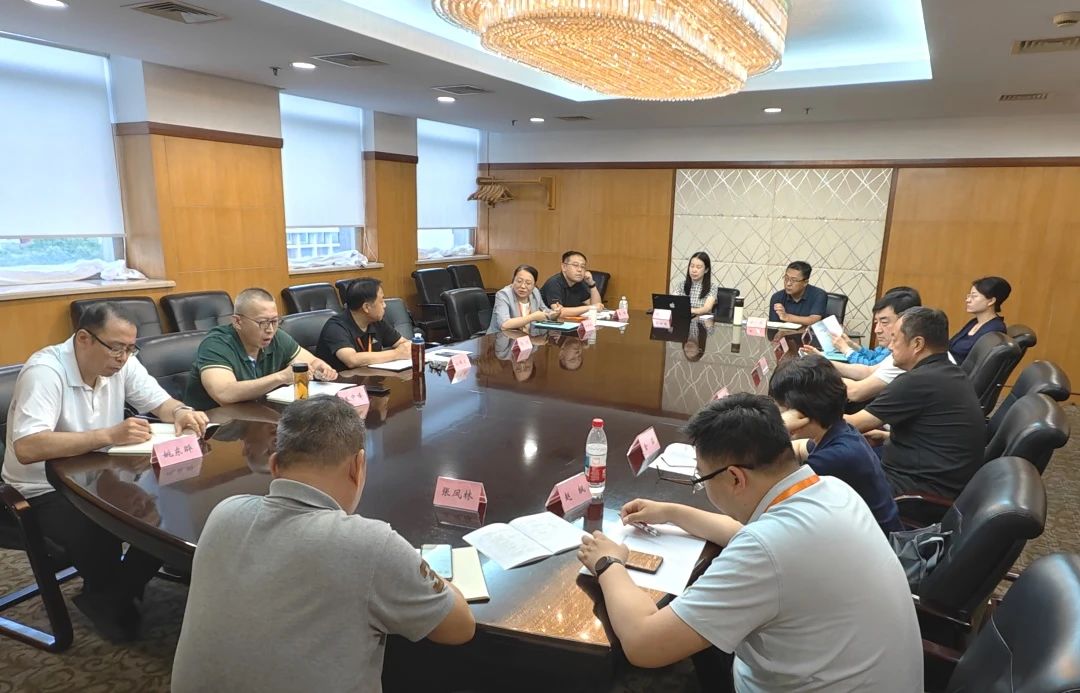
Group Discussions and Communications
Building Capacities Through Learning-Driven Practices
Participants unanimously agreed that the workshop was strategically insightful and highly instructive, which embodies Beijing and Shanghai’s joint efforts to align with national strategies and shoulder missions of the times. Through thematic discussions, they gained broader perspectives and practical methodologies, achieving sharper clarity on objectives and priorities for improving Beijing’s role as the center for international exchanges. This has injected new momentum into advancing the mission from a new starting point.


